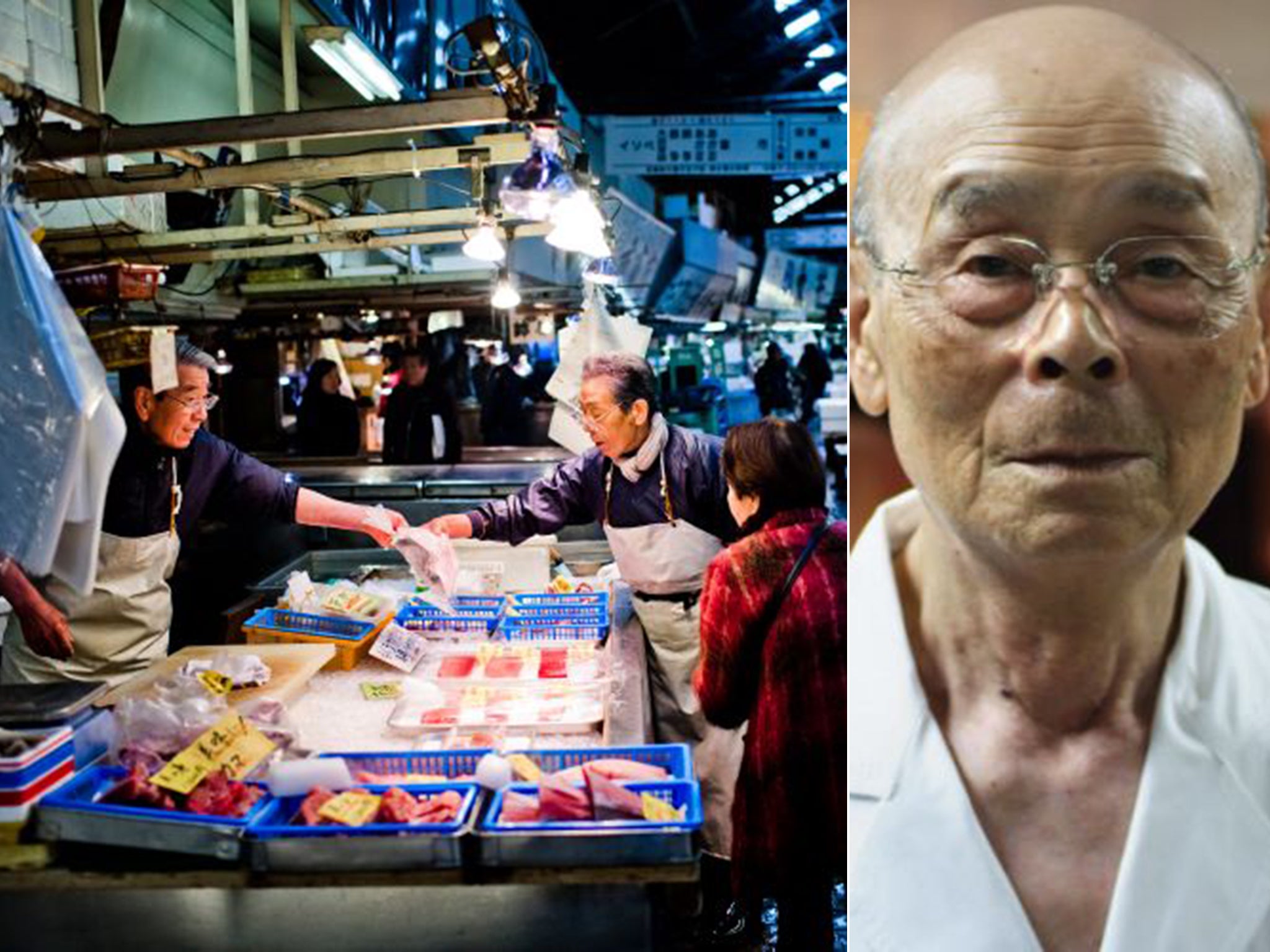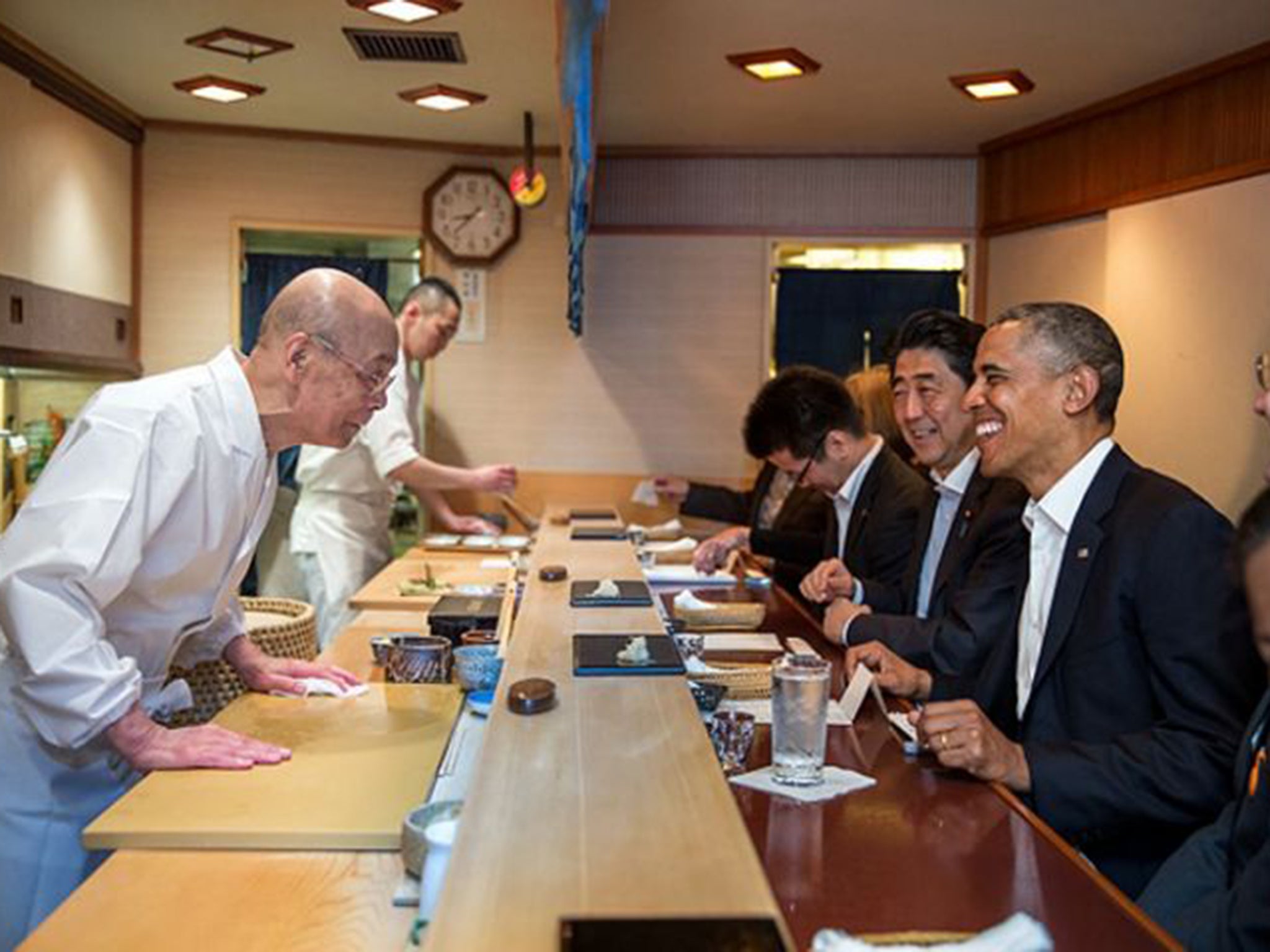Sushi under threat from overfishing, claims Japan's most revered chef
Jiro Ono fears for the future of his country's traditional food

Your support helps us to tell the story
From reproductive rights to climate change to Big Tech, The Independent is on the ground when the story is developing. Whether it's investigating the financials of Elon Musk's pro-Trump PAC or producing our latest documentary, 'The A Word', which shines a light on the American women fighting for reproductive rights, we know how important it is to parse out the facts from the messaging.
At such a critical moment in US history, we need reporters on the ground. Your donation allows us to keep sending journalists to speak to both sides of the story.
The Independent is trusted by Americans across the entire political spectrum. And unlike many other quality news outlets, we choose not to lock Americans out of our reporting and analysis with paywalls. We believe quality journalism should be available to everyone, paid for by those who can afford it.
Your support makes all the difference.The world's most renowned sushi chef, Jiro Ono, predicts a bleak future for the Japanese speciality because of increasing difficulties in sourcing ingredients, because of overfishing.
"The future is so bad," the Michelin three-starred chef, 89, who still works night and day in his restaurant in Tokyo's Ginza district, said. "Even now I can't get the ingredients that I really want. I have a negative view of the future. It is getting harder to find fish of a decent quality."
Although long celebrated in Japan, Ono came to global attention when he became the subject of the US documentary Jiro Dreams of Sushi in 2011.
Despite being showered with accolades, he insists he is still trying to achieve perfection. His advice for young sushi chefs is "to learn patience". "Training is about learning patience," he says. "You can learn technique after you have mastered patience."
He is uniquely qualified to know. He was apprenticed aged eight ("I was at elementary school but there was no time for homework. I have been used to standing all day since then").
Ono received Japan's prestigious Medal with Yellow Ribbon for dedication to his profession last month. His restaurant Sukiyabashi Jiro was the first sushi restaurant in the world to obtain three Michelin stars, in 2007, when the Tokyo edition of the guide was launched.
Unsurprisingly, he retained the honour this month when Tokyo kept its crown as the gourmet capital of the world with the most starred restaurants. This comes a year after Japanese food (washoku) became the second cuisine, with French, to make it on to Unesco's cultural heritage list.

Despite its status, Sukiyabashi Jiro is a modest restaurant in the basement of a business building at the entrance to Ginza Metro station. Customers have no choice over the 30,000 yen (£160) menu, and are served a set 20 pieces, which differ depending on the best ingredients sourced that morning at the famous Tsukiji fish market.
"I have been to the conveyer-belt sushi restaurants as well," Ono admitted recently. "I try everything. It is important to constantly research.… If you don't have an intense focus to get to the next level, the value of your work will diminish."
When Barack Obama ate at the restaurant earlier his year, food critic Masuhiro Yamamoto said the occasion was the "first time in history that the President of the US has had something prepared for him and eaten it immediately after it was prepared".
Since the visit – during which Obama ate every piece of sushi, according to Ono's son Yoshikazu, despite reports he ate only half – Ono's customers are 70 per cent foreign guests. The restaurant, which only takes reservations one month ahead, always books out instantly. No one answers the phone, so it is almost impossible to call for a reservation. The best chance of getting a last-minute table is by going through the concierges of Tokyo's top hotels, such as the Palace Hotel or the Ritz-Carlton.
And if you are one of the lucky few to get a seat, it would be wise to take Ono's advice: "Delicious sushi is only half the responsibility of the chef. It is also half the responsibility of the person eating the sushi."
Join our commenting forum
Join thought-provoking conversations, follow other Independent readers and see their replies
Comments